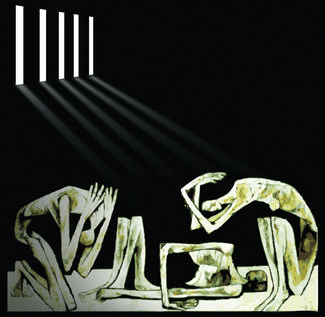
Taiwan’s Transition is a Strategic Opportunity for the United States
May 23, 2016
The Taiwanese Curve Ball: Why Taiwan’s New Government Will Put the Brakes on China’s Foreign Policy
June 14, 2016Julia Bowie |
The Assistance Association for Political Prisoners (AAPP) has released the first comprehensive study of Burma’s political prisoners, revealing judicial abuse, systematic torture, and enormous barriers to reintegration. AAPP surveyed 2,000 ex-political prisoners (ex-PPs) for its report, which makes a case for reparations for ex-PPs. AAPP’s research project was made possible by the Project 2049 Institute and the Department of State’s Bureau for Democracy, Human Rights, and Labor.
Since the beginning of military rule in 1962, Burma has jailed an estimated 7,000-10,000 political prisoners. The number of political prisoners surged after student-led protests in 1988 ended in a government crackdown and a brutal suppression of opposition. Numbers peaked between 2009 and 2010 when an estimated 2,000 political prisoners were behind bars.
After Thein Sein’s quasi-civilian government took power in 2011, initial optimism over the release of hundreds of political prisoners came to a halt as reforms stalled. The government adopted new tactics to ensure that political dissidents remained imprisoned—either by delaying trials or imposing consecutive, seemingly lenient sentences to ensure longer prison times.
In 2016, the NLD-led government came to power with a promise to release all political prisoners, declaring there should be no political prisoners in a democratic Burma. Since then, the government has dropped its charges against 199 students and activists, and 83 convicted political prisoners have been released. While this is an encouraging step, there are still 121 political prisoners left in Burma, according to AAPP data, most of whom are either awaiting trial or for the government to drop its charges.
Since AAPP was founded in 1999, it has become the leading Burmese institution addressing the country’s political prisoner situation, achieving both local and international recognition for their work. The AAPP describes the importance of delivering justice to Burma’s political prisoners in the following statement: “As long as political prisoners exist inside Burma, Burma will not be free. They represent the struggle for democracy, human rights, equality and freedom for the people of Burma. This makes the immediate and unconditional release of all political prisoners an integral part of Burma’s drive for national reconciliation.â€
Project 2049 Senior Fellow Kelley Currie said she expects legal reform to take five to ten years. “There are laws still on the books, such as those against unlawful assembly, that criminalize political activity,†Currie said. “These will take time to reform.â€
AAPP is currently working with parliaments at both the national and regional levels to amend laws pertaining to political activity and human rights.
“The main challenge is to transform the judiciary into a rights-protecting institution rather than a tool solely for security enforcement,†Currie said.
AAPP’s study provides previously-unknown information on exactly how Burma’s authorities abused the judicial system to silence political opposition, including which legislation was used to justify imprisonment and how trials were unfairly adjudicated. Most respondents revealed they were arrested under the Emergency Provisions Act (1950) or other “security†legislation such as the Unlawful Associations Act (1908), selectively used to restrict freedom of expression, assembly and association. Most trials took place in military or prison courts, where defendants were denied the right to counsel, and trials were shrouded in secrecy. Many respondents said their trials lasted between five and fifteen minutes, just long enough for the judge to come and read their sentence off a sheet of paper.
The study also reveals the systematic use of torture, either to elicit information or confessions, or to punish and humiliate political prisoners. 72 percent of respondents were subjected to physical torture and 75 percent reported psychological torture. Methods of psychological torture included blindfolding, hooding, sleep deprivation, threats, or being taunted with poisonous animals. Respondents described a wide array of physical torture techniques, such as waterboarding, electric shocks, and genital mutilation.
Once political prisoners are released, they face significant barriers to reintegration. Under both military rule and Thein Sein’s government, many were subject to continued monitoring and harassment, and those released under amnesty lived in constant fear of re-arrest. The government did nothing to assist their rehabilitation and in fact limited their travel, employment, and educational opportunities. Many ex-PPs live in exile outside Burma, either self-imposed due to fear of the authorities, or because they fled to Thailand after being blacklisted by the government.
The study also revealed that ex-PPs suffer lasting physical and mental health problems. Eleven percent of respondents suffer from chronic aches and pains, and three percent are fully or partially paralyzed. Ex-PPs exhibit symptoms of depression and anxiety common in those afflicted with PTSD.
After describing the full extent of the struggles of ex-PPs, the report calls for reparations, saying that addressing the significant human rights violations under previous governments is crucial for democratic transition and national reconciliation. It concludes with recommendations for restitution, rehabilitation, compensation, and guarantees of non-repetition, and advocates that civil society groups in Burma and the international community pressure Burma’s government to adopt AAPP’s recommendations. AAPP contends that reparations are a critical step toward restoring the trust of the Burmese people in their government.
“Under the Ne Win administration, Burma provided financial compensation to people who were unjustly imprisoned, so reparations are not unprecedented,†Currie said. “And under the NLD-led government it is even more likely that some form of restorative justice for former political prisoners will happen. The most hopeful thing is that this administration is interested in helping this community and ensuring that they are recognized for their contributions to human rights and democracy in Burma.â€




